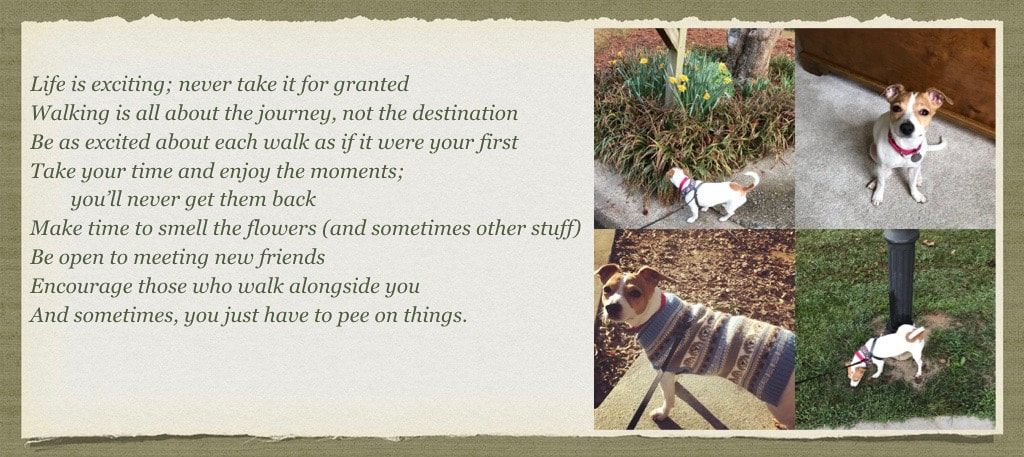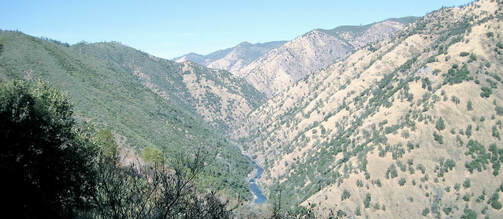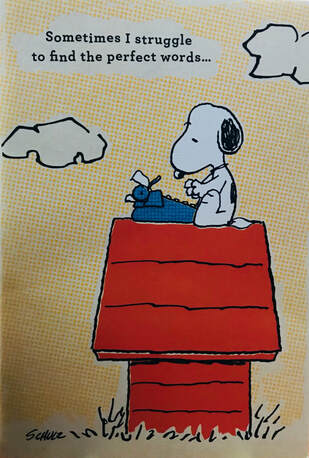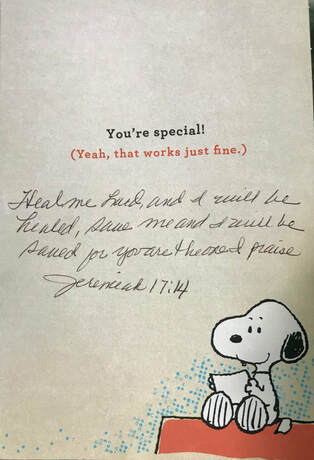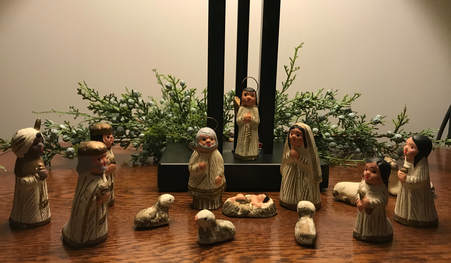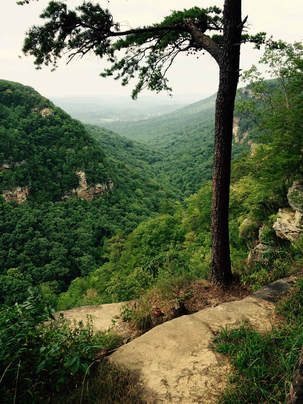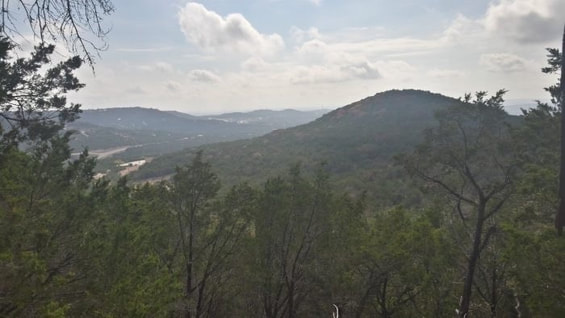RANDOM THOUGHTS AND MUSINGS
Life According to Zoe
Anyone who's ever walked a dog knows you can learn so much from them.
Streams in the Wasteland
What’s that supposed to mean?
It’s five in the morning, and I may as well confess—I had about two hours of sleep last night sandwiched between moments of worrying about this post. Okay, worrying is a strong word. How about agonizingly considering? What can I, a normal, regular person, say to you that will be of value? Of interest? That you haven’t already heard? After all . . . I’m just me. But here goes.
In 2010, I began writing inspirational/Christian romance. My goal? To encourage others the way Christian fiction writers had encouraged me.
But, my writing journey really started ten years earlier, when the idea of writing anything, much less a novel, sounded as grating to me as fingernails on a chalkboard. I was blissfully teaching kindergarten part-time in an ideal situation at a private Christian school. I loved my work, I loved my coworkers, I loved my students, I loved their parents. My life was overflowing!
Then came the drought. My husband lost his job due to some health issues. We had one daughter in college, one headed to college the next fall, and four car payments on top of a house payment. (We obviously hadn’t heard of Dave Ramsey!) When the opportunity presented itself for me to move into full-time work in the “real world,” I knew if I left the school, I’d be giving up more than a job. I’d be losing what had been my personal ministry for years.
Yet I had to decide. One morning I sat at a local park guiltily savoring my Chik-fil-a chicken biscuit (Some things are just worth the calories!) and reading my Bible. I came upon Isaiah 43:18-19, and on that day, at that very hour, that passage was meant just for me. God had something new for me to do. I just had to find it.
A decade later the idea of writing to encourage others began to nudge its way into my heart. Was I insane? Early dementia had surely set it! Anything but writing, Lord . . . Yet when I typed the first words on the first page of my first manuscript, I knew this was the “new work,” my "Stream in the Wasteland."
So what can I say to encourage you?
No matter what your wasteland—or how bad the drought—the rains will come, and the streams will flow. Often in ways you might never have guessed. Sometimes it may be in sprinkles. Sometimes it may be a flood.
And if you’re in the middle of a drought right now, look carefully. Can you seen that trickle of a stream beginning?
It’s five in the morning, and I may as well confess—I had about two hours of sleep last night sandwiched between moments of worrying about this post. Okay, worrying is a strong word. How about agonizingly considering? What can I, a normal, regular person, say to you that will be of value? Of interest? That you haven’t already heard? After all . . . I’m just me. But here goes.
In 2010, I began writing inspirational/Christian romance. My goal? To encourage others the way Christian fiction writers had encouraged me.
But, my writing journey really started ten years earlier, when the idea of writing anything, much less a novel, sounded as grating to me as fingernails on a chalkboard. I was blissfully teaching kindergarten part-time in an ideal situation at a private Christian school. I loved my work, I loved my coworkers, I loved my students, I loved their parents. My life was overflowing!
Then came the drought. My husband lost his job due to some health issues. We had one daughter in college, one headed to college the next fall, and four car payments on top of a house payment. (We obviously hadn’t heard of Dave Ramsey!) When the opportunity presented itself for me to move into full-time work in the “real world,” I knew if I left the school, I’d be giving up more than a job. I’d be losing what had been my personal ministry for years.
Yet I had to decide. One morning I sat at a local park guiltily savoring my Chik-fil-a chicken biscuit (Some things are just worth the calories!) and reading my Bible. I came upon Isaiah 43:18-19, and on that day, at that very hour, that passage was meant just for me. God had something new for me to do. I just had to find it.
A decade later the idea of writing to encourage others began to nudge its way into my heart. Was I insane? Early dementia had surely set it! Anything but writing, Lord . . . Yet when I typed the first words on the first page of my first manuscript, I knew this was the “new work,” my "Stream in the Wasteland."
So what can I say to encourage you?
No matter what your wasteland—or how bad the drought—the rains will come, and the streams will flow. Often in ways you might never have guessed. Sometimes it may be in sprinkles. Sometimes it may be a flood.
And if you’re in the middle of a drought right now, look carefully. Can you seen that trickle of a stream beginning?
From Gail Pallotta's Blog

Why do you write?
I never aspired to be a writer, but I’ve always enjoyed reading. I majored in English in college because I liked grammar. Not writing. (Weird, I know.) God laid writing on my heart as a ministry much later in life. My desire is to create "streams in the wasteland."
Were you an avid reader as a child? What did you read?
Oh, yes! I read everything I could find. I particularly enjoyed mysteries and tales of adventure. We lived in England during part of my childhood and got hooked on the Fantastic Five series. Two of my other favorites were Heidi and Robinson Crusoe.
Where do you get ideas for your books?
Everywhere. Sometimes the stories come from situations I’ve observed, as in The Waiting. Often, I’ll read a scripture or hear worship song, and a phrase will explode in my heart, and a storyline will begin to develop.
What themes do you write about?
My favorite themes are forgiveness and redemption. None of us is ever so far away that we can’t be forgiven and redeemed.
What is your writing schedule and where do you write?
My favorite time to write is early in the morning. It just seems my mind is fresher then. I write in my home office and also in bed. I’m sitting in my daughter’s kitchen right now writing. I do love my laptop!
Are you a plotter or a pantzer?
Ah, yes. The big question. I happily confess I am a plantzer. Minimal plotting. I usually know how the story will begin, the black moment, and the ending. The rest is all written by the seat of my pants. I’ve often found I can be in the middle of writing a scene, and the characters will take me someplace I could have never plotted. I love to let them be creative.
Do you have any advice for aspiring writers?
Yes! Write, write, write. Join, join, join. And enter, enter, enter. The most important part of writing is striving to perfect your craft, and that comes through practice and education. Authors’ groups (like ACFW) are a perfect setting to meet other likeminded writers. For me, entering contests was a valuable tool. You receive unbiased feedback about your work, and if you final or win, your entry is usually evaluated by an agent or a publisher. A great way to get your work moved to the top of the pile.
I never aspired to be a writer, but I’ve always enjoyed reading. I majored in English in college because I liked grammar. Not writing. (Weird, I know.) God laid writing on my heart as a ministry much later in life. My desire is to create "streams in the wasteland."
Were you an avid reader as a child? What did you read?
Oh, yes! I read everything I could find. I particularly enjoyed mysteries and tales of adventure. We lived in England during part of my childhood and got hooked on the Fantastic Five series. Two of my other favorites were Heidi and Robinson Crusoe.
Where do you get ideas for your books?
Everywhere. Sometimes the stories come from situations I’ve observed, as in The Waiting. Often, I’ll read a scripture or hear worship song, and a phrase will explode in my heart, and a storyline will begin to develop.
What themes do you write about?
My favorite themes are forgiveness and redemption. None of us is ever so far away that we can’t be forgiven and redeemed.
What is your writing schedule and where do you write?
My favorite time to write is early in the morning. It just seems my mind is fresher then. I write in my home office and also in bed. I’m sitting in my daughter’s kitchen right now writing. I do love my laptop!
Are you a plotter or a pantzer?
Ah, yes. The big question. I happily confess I am a plantzer. Minimal plotting. I usually know how the story will begin, the black moment, and the ending. The rest is all written by the seat of my pants. I’ve often found I can be in the middle of writing a scene, and the characters will take me someplace I could have never plotted. I love to let them be creative.
Do you have any advice for aspiring writers?
Yes! Write, write, write. Join, join, join. And enter, enter, enter. The most important part of writing is striving to perfect your craft, and that comes through practice and education. Authors’ groups (like ACFW) are a perfect setting to meet other likeminded writers. For me, entering contests was a valuable tool. You receive unbiased feedback about your work, and if you final or win, your entry is usually evaluated by an agent or a publisher. A great way to get your work moved to the top of the pile.
The Power of Words
“The pen is mightier than the sword.” I remember the first time I heard these words in school. We discussed how, in using words to change a person’s thoughts, you can transform the heart. Words, not swords, have the power to cause heart-change. That one idea began my love affair with words.
Several years ago, a friend invited me to a Beth Moore conference. It was a time when my life was in a drought. Certain God had called me into a new ministry, I’d begun writing. After numerous rejections and some harsh critiques, which all writers receive, I began to question my decision. Writing was too much work. Too hard. Too painful. If I wasn’t being successful, maybe I hadn’t been called.
In addition to the mental pain, I’d been having unexplained back problems, and the thought of sitting for hours in a stadium seat was torturous. But . . . I went, because time with my friend was priceless.
As we entered the huge arena, I recognized the background music. It was a recorded song written and sung by my church’s worship pastor, Aaron Keyes. Sovereign Over Us. What a fun coincidence! Of all the recordings they could have chosen, one by a person I knew. A song I’d sung many times in church.
We found our seats. Mine had an envelope on it. I glanced around the huge convention center. Each seat held an envelope. Thousands of seats, thousands of envelopes.
I opened mine. Snoopy. I love Snoopy. Sitting at a typewriter and struggling to find the right words.
Then I opened the card. Someone had handwritten a Bible verse inside. “Heal me, Lord, and I will be healed. Save me and I will be saved, for you are the one I praise. Jeremiah 17:14”
Several years ago, a friend invited me to a Beth Moore conference. It was a time when my life was in a drought. Certain God had called me into a new ministry, I’d begun writing. After numerous rejections and some harsh critiques, which all writers receive, I began to question my decision. Writing was too much work. Too hard. Too painful. If I wasn’t being successful, maybe I hadn’t been called.
In addition to the mental pain, I’d been having unexplained back problems, and the thought of sitting for hours in a stadium seat was torturous. But . . . I went, because time with my friend was priceless.
As we entered the huge arena, I recognized the background music. It was a recorded song written and sung by my church’s worship pastor, Aaron Keyes. Sovereign Over Us. What a fun coincidence! Of all the recordings they could have chosen, one by a person I knew. A song I’d sung many times in church.
We found our seats. Mine had an envelope on it. I glanced around the huge convention center. Each seat held an envelope. Thousands of seats, thousands of envelopes.
I opened mine. Snoopy. I love Snoopy. Sitting at a typewriter and struggling to find the right words.
Then I opened the card. Someone had handwritten a Bible verse inside. “Heal me, Lord, and I will be healed. Save me and I will be saved, for you are the one I praise. Jeremiah 17:14”
The song about God’s sovereignty, the verse about healing, even the typewriter, for goodness sake. I can’t remember what Beth Moore spoke about that weekend. I’m sure it was fabulous. But I will never forget what God said to me through the song and the card. The words were streams in my wasteland.
Oh, the power of words! We all have the responsibility to use our words for good. To encourage, to build up. Especially as writers. I often struggle with finding the perfect word to express an idea, simply because my task is to use words not only to tell a story, but also to show God’s love.
When the angels appeared to the shepherds, their words struck fear. Yet, the shepherds were obedient and went to the manger, and the words they heeded changed them forever.
Words. Powerful. Life-changing. Maybe that’s why John tells us Jesus is the Word.
Oh, the power of words! We all have the responsibility to use our words for good. To encourage, to build up. Especially as writers. I often struggle with finding the perfect word to express an idea, simply because my task is to use words not only to tell a story, but also to show God’s love.
When the angels appeared to the shepherds, their words struck fear. Yet, the shepherds were obedient and went to the manger, and the words they heeded changed them forever.
Words. Powerful. Life-changing. Maybe that’s why John tells us Jesus is the Word.
"In the beginning was the Word, and the Word was with God, and the Word was God. The Word becomes flesh and made his dwelling among us." John 1: 1, 14
Waiting for Christmas
“How much longer?”
In the days leading up to Christmas, my mother heard this question so many times, she was probably sick of it. Through the eyes of a child, those few days between the end of school and Christmas was an eternity.
Every morning, I would go downstairs and turn on the Christmas tree lights. I’d double-check all the packages underneath to make certain they were arranged with the larger ones in the back and the smaller ones in front. I’d confirm all the name tags were visible so we’d be ready when Christmas finally arrived.
As carols played in the background, I’d remove the delicate characters from the nativity set, dust them off, and then replace them one at a time, careful to position the small statues so each one’s gaze fell on the Christ Child. As an illustration of the birth of the Prince of Peace, I’d make certain some of the animals were grazing unafraid close to the manger.
Finally, I’d turn on the soft ivory bulb in the back of the little stable and blanket the scene with a warm, welcoming glow. And all was done. All was ready. And then I would wait. Until the next day. When I’d start my preparations all over again.
“How much longer?”
How many times the Israelites must have asked that question in the hundreds of years between the promise of the Messiah and His coming. Did they prepare their hearts and lives daily for His impending arrival?
I’m sure some did. But in the space between a promise and its fulfillment, God may seem silent. And keeping a sense of expectation can be difficult, if not impossible.
“How much longer?”
How many times have you asked yourself that question? You have a dream, a desire, a ministry God has placed in your heart. And yet you feel caught in those years between Malachi and Matthew. And God seems silent.
Know this, time spent waiting on God is never wasted. He has a reason for the silence. Use the time to prepare. Whatever your dream, study, practice, and learn to be the best “whatever” you can be.
My mother was wise. She’d call me into the kitchen and put me to work helping decorate the Christmas cookies we gave our friends and neighbors as gifts. She knew the best way to wait was to work.
So decorate your cookies, dust off your nativity, and arrange your packages, because your Christmas is coming.
In the days leading up to Christmas, my mother heard this question so many times, she was probably sick of it. Through the eyes of a child, those few days between the end of school and Christmas was an eternity.
Every morning, I would go downstairs and turn on the Christmas tree lights. I’d double-check all the packages underneath to make certain they were arranged with the larger ones in the back and the smaller ones in front. I’d confirm all the name tags were visible so we’d be ready when Christmas finally arrived.
As carols played in the background, I’d remove the delicate characters from the nativity set, dust them off, and then replace them one at a time, careful to position the small statues so each one’s gaze fell on the Christ Child. As an illustration of the birth of the Prince of Peace, I’d make certain some of the animals were grazing unafraid close to the manger.
Finally, I’d turn on the soft ivory bulb in the back of the little stable and blanket the scene with a warm, welcoming glow. And all was done. All was ready. And then I would wait. Until the next day. When I’d start my preparations all over again.
“How much longer?”
How many times the Israelites must have asked that question in the hundreds of years between the promise of the Messiah and His coming. Did they prepare their hearts and lives daily for His impending arrival?
I’m sure some did. But in the space between a promise and its fulfillment, God may seem silent. And keeping a sense of expectation can be difficult, if not impossible.
“How much longer?”
How many times have you asked yourself that question? You have a dream, a desire, a ministry God has placed in your heart. And yet you feel caught in those years between Malachi and Matthew. And God seems silent.
Know this, time spent waiting on God is never wasted. He has a reason for the silence. Use the time to prepare. Whatever your dream, study, practice, and learn to be the best “whatever” you can be.
My mother was wise. She’d call me into the kitchen and put me to work helping decorate the Christmas cookies we gave our friends and neighbors as gifts. She knew the best way to wait was to work.
So decorate your cookies, dust off your nativity, and arrange your packages, because your Christmas is coming.
The Perfect Place
I remember the first thoughts I had when my husband and I arrived in Atlanta, Georgia from Fort Worth, Texas. We’d driven for sixteen hours with our cocker spaniel, a Styrofoam cooler full of tropical fish, and enough plants to start a small nursery in the back seat of our compact car.
As we made the final leg of our journey around the Atlanta perimeter to our new home, I stared through the window into the pitch black, fighting to stay awake in the early morning hours. And that’s when I first noticed them. Even though “Everything’s bigger in Texas,” the stars outside my window were larger and brighter than any I’d ever seen in Fort Worth.
Suddenly I realized the stars weren’t stars at all. They were streetlights and porch lights—diamonds shimmering through the forest of majestic trees that blanketed the hillsides of Atlanta. Trees. Hills. Rarities for a girl from Fort Worth. And I thought, “Father, please don’t let my eyes ever stop seeing this magnificence. May this beauty never become commonplace or invisible to me.”
While I’ve always loved the splendor of the tree-covered hills in Georgia, with each return trip to Texas, I began to see a stark beauty in the flat, almost treeless landscape around Fort Worth. An allure I never saw when I lived there. An openness that called to my heart. And in the midst of the simplicity of central Texas, the fictional town of Crescent Bluff, the primary setting for my novels, was born.
In a pivotal scene in The Waiting, Katherine, the heroine, realizes she’s lived most of her life in bondage to an idea she now believes is false. The setting for that scene needed to be different from the rest of the novel. It needed to paint a powerful picture of the freedom she’d found. Yet nothing my mind conceived felt right. So I did what I always do when I hit a roadblock. I closed my laptop and took some time away.
We headed out on a camping trip to Cloudland Canyon in north Georgia. And there, hiking along the rim of the canyon, I found my setting. I looked twice for a “Setting Reserved for Carol” sign, because this was exactly what I’d been searching for—exactly where Katherine needed to be. Texas is a big state; surely I could find a comparable location. I snapped a picture.
Enter the perfect setting—and only a few hours from Crescent Bluff. Cloudland Canyon was about to be transformed into Balcones Canyonlands in the Texas Hill Country.
And although she didn’t yet know it, Katherine was going on a road trip!
As we made the final leg of our journey around the Atlanta perimeter to our new home, I stared through the window into the pitch black, fighting to stay awake in the early morning hours. And that’s when I first noticed them. Even though “Everything’s bigger in Texas,” the stars outside my window were larger and brighter than any I’d ever seen in Fort Worth.
Suddenly I realized the stars weren’t stars at all. They were streetlights and porch lights—diamonds shimmering through the forest of majestic trees that blanketed the hillsides of Atlanta. Trees. Hills. Rarities for a girl from Fort Worth. And I thought, “Father, please don’t let my eyes ever stop seeing this magnificence. May this beauty never become commonplace or invisible to me.”
While I’ve always loved the splendor of the tree-covered hills in Georgia, with each return trip to Texas, I began to see a stark beauty in the flat, almost treeless landscape around Fort Worth. An allure I never saw when I lived there. An openness that called to my heart. And in the midst of the simplicity of central Texas, the fictional town of Crescent Bluff, the primary setting for my novels, was born.
In a pivotal scene in The Waiting, Katherine, the heroine, realizes she’s lived most of her life in bondage to an idea she now believes is false. The setting for that scene needed to be different from the rest of the novel. It needed to paint a powerful picture of the freedom she’d found. Yet nothing my mind conceived felt right. So I did what I always do when I hit a roadblock. I closed my laptop and took some time away.
We headed out on a camping trip to Cloudland Canyon in north Georgia. And there, hiking along the rim of the canyon, I found my setting. I looked twice for a “Setting Reserved for Carol” sign, because this was exactly what I’d been searching for—exactly where Katherine needed to be. Texas is a big state; surely I could find a comparable location. I snapped a picture.
Enter the perfect setting—and only a few hours from Crescent Bluff. Cloudland Canyon was about to be transformed into Balcones Canyonlands in the Texas Hill Country.
And although she didn’t yet know it, Katherine was going on a road trip!
"Forget the former things; do not dwell on the past.
See, I am doing a new thing! Now it springs up; do you not perceive it?
I am making a way in the wilderness and streams in the wasteland." Isaiah 43:18-19
See, I am doing a new thing! Now it springs up; do you not perceive it?
I am making a way in the wilderness and streams in the wasteland." Isaiah 43:18-19
